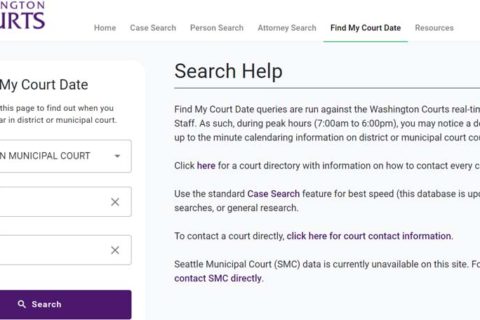A welfare check is intended to prevent unwanted things from happening to someone, such as potential suicide, child engagement, drug overdose, and anything else dangerous. Law enforcement officers are the only people authorized to conduct a welfare check, and they can be assisted by people in the person’s immediate vicinity.
If you’re concerned about someone in another state after losing contact or even discovering their posts about suicide on social media, you can do a welfare check. Since someone lives in another state, you may be confused about how to do it. No worries! This post will show you how to do a welfare check on someone in another state. Here you go!

How to Do a Welfare Check on Someone in Another State?
Even though someone you’re worried about lives in another state, you can still do a welfare check easily. Of course, you can’t do it yourself, you must instead call the local law enforcement officers within the town or city where the person resides. After you’ve dialed, you can make a request for a welfare check.
To do a welfare check on someone in another state, you must:
- Find out what city or county the person lives in.
- Look up the local non-emergency number or 911 and make a phone call.
- Give as much information as you have about someone you’re worried about, such as location, name, age, any medical record like diabetes, stroke, etc., or mental health issues like schizophrenia. The information is very important for local enforcement officers to make it easier for them to pinpoint where to go to check on them.
- Call the local hospitals and jails to double check those places to determine whether someone you’re worried about has been rescued.
After you request a welfare check on someone in another state, you may have to wait to hear back from the police officers. If the police officers have conducted the welfare check and found something wrong with someone, they will call you back with an update.
Otherwise, if there is something dangerous about someone you’re worried about and he or she needs emergency medical help, the police officers will focus on rescuing that person and bringing him or her to nearby hospitals or medical facilities. Of course, they would call for medical assistance before they called you back.
When is a Welfare Check Conducted on Someone in Another State?
A welfare check is initiated when a person’s family or friends lose contact with him or her who lives in another state. They believe there is something wrong with the person since they have had little contact and they call the local law enforcement agency to do a welfare check.
The local law enforcement officers will conduct a welfare check on someone in another state if one or more of the following circumstances occur:
1. Suicide Risk
A welfare check will be conducted if there is a real and substantial risk to the person’s life, like suicide. When someone displays suicidal tendencies by posting something referring to potential suicide, an urgent welfare check should be conducted to help someone get the mental health support that he or she really needs.
2. There’s Suspicious Activity Around Someone’s House
If there is a stranger who is prowling near someone’s house and the person has no news, you can call the local law enforcement agency to request a welfare check. Of course, it allows police officers to quickly screen potential victims. This situation means there is a reasonable belief that a stranger has committed a crime against someone who resides in the house.
3. Child Engagement
If you believe that there is a reasonable reason that the child is suffering, you can also request a welfare check to allow the law enforcement officers to check the situation around the child.
If there is a situation where a welfare check is inappropriate, the law enforcement officers have to take reasonable steps to ensure the safety of the individual, child, or family. It could be a home visit, a phone call, or a discussion with another professional in contact with the family.

A bookworm and researcher especially related to law and citizenship education. I spend time every day in front of the internet and the campus library.





